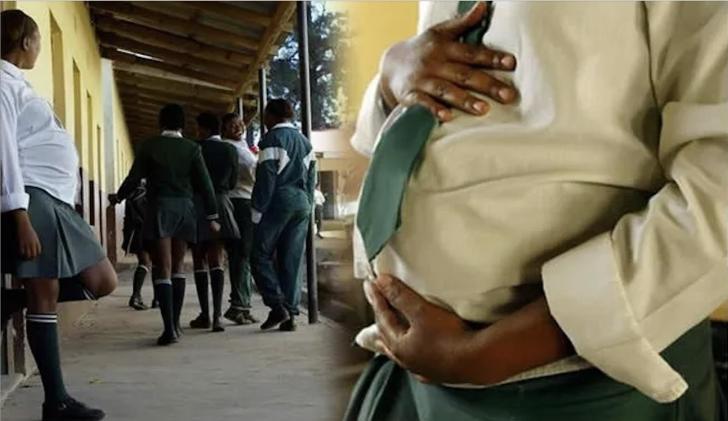News / National
16 pregnant pupils fail to write Grade 7 exams
01 Oct 2024 at 07:56hrs |
0 Views

At least 16 pupils from Monozi Primary School in Mbire District were unable to sit for their Grade Seven Zimbabwe School Examinations Council (Zimsec) examinations last week after falling pregnant. The disturbing revelation was made by a teacher from the school during the inaugural session of mobile one-stop centre engagements in the area.
The mobile one-stop centres initiative is part of a broader effort to create resilient grassroots mechanisms and reduce inequalities by improving access to comprehensive Gender-Based Violence (GBV) services across Zimbabwe. The programme brings together various partners to provide essential services during community outreach events.
The Monozi Primary teacher highlighted the alarming situation in the school.
"We submit monthly reports on school dropouts to the district. As of late, 16 seventh-grade girls this year failed to sit for their Zimsec examinations, and we have determined that parents in this community do not value a girl's education," the teacher stated. She added that many of the girls are being abused, especially those who have reached puberty.
The teacher also revealed that, in some cases, even when instances of abuse are reported, parents negotiate with the perpetrators behind the scenes, accepting payment tokens in exchange for their silence.
"Life just goes on after that, with no justice for the abused child," she lamented.
The situation is further exacerbated by severe drought conditions in the area, prompting some parents to trade their daughters for grain as a survival mechanism. This alarming trend has fueled the rising numbers of teenage pregnancies and early marriages.
Ms. Rudo Chidembo, village head of Chipita, expressed her deep concern over the plight of the girls and welcomed the intervention provided by the mobile one-stop centres.
"These centres have arrived just in time to address the growing issue of teenage pregnancies, sexual abuse, and early marriages. It was heartbreaking to hear about the girls who missed their final exams," she said.
Ms. Chidembo urged the Zimbabwe Gender Commission and the United Nations Development Fund to establish permanent structures to ensure that these issues are eradicated.
The mobile one-stop centres offer a range of services to the community, including birth registration through the Department of Civil Registry, clinical care from the Ministry of Health and Child Care, and legal support from partners such as the Musasa Project. The centres aim to address the root causes of gender-based violence and provide necessary support to affected families.
This initiative seeks to empower communities and protect vulnerable children, especially girls, who continue to face significant challenges in accessing education and escaping cycles of abuse.
The mobile one-stop centres initiative is part of a broader effort to create resilient grassroots mechanisms and reduce inequalities by improving access to comprehensive Gender-Based Violence (GBV) services across Zimbabwe. The programme brings together various partners to provide essential services during community outreach events.
The Monozi Primary teacher highlighted the alarming situation in the school.
"We submit monthly reports on school dropouts to the district. As of late, 16 seventh-grade girls this year failed to sit for their Zimsec examinations, and we have determined that parents in this community do not value a girl's education," the teacher stated. She added that many of the girls are being abused, especially those who have reached puberty.
The teacher also revealed that, in some cases, even when instances of abuse are reported, parents negotiate with the perpetrators behind the scenes, accepting payment tokens in exchange for their silence.
"Life just goes on after that, with no justice for the abused child," she lamented.
Ms. Rudo Chidembo, village head of Chipita, expressed her deep concern over the plight of the girls and welcomed the intervention provided by the mobile one-stop centres.
"These centres have arrived just in time to address the growing issue of teenage pregnancies, sexual abuse, and early marriages. It was heartbreaking to hear about the girls who missed their final exams," she said.
Ms. Chidembo urged the Zimbabwe Gender Commission and the United Nations Development Fund to establish permanent structures to ensure that these issues are eradicated.
The mobile one-stop centres offer a range of services to the community, including birth registration through the Department of Civil Registry, clinical care from the Ministry of Health and Child Care, and legal support from partners such as the Musasa Project. The centres aim to address the root causes of gender-based violence and provide necessary support to affected families.
This initiative seeks to empower communities and protect vulnerable children, especially girls, who continue to face significant challenges in accessing education and escaping cycles of abuse.
Source - The Herald
Join the discussion
Loading comments…



































